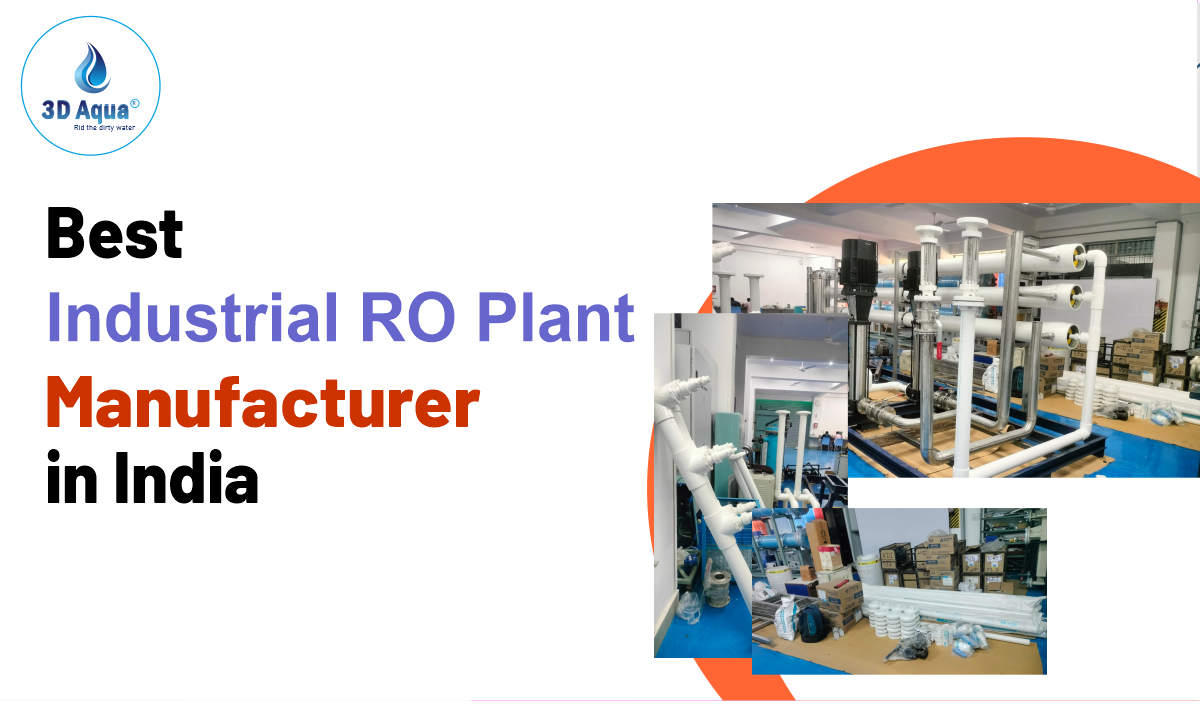Pharmaceutical manufacturing requires the highest levels of water purity to maintain product safety, efficacy, and compliance with stringent industry regulations. Water is an essential component in drug production, cleaning processes, and laboratory applications. Impurities, even in trace amounts, can compromise product quality, making reliable water treatment solutions a necessity.
Industrial RO Plants Customized for Pharmaceutical Manufacturing serve as a cornerstone in ensuring ultra-pure water availability. These advanced filtration systems remove contaminants, bacteria, and dissolved solids, offering a consistent supply of high-quality water. With precision engineering and industry-compliant designs, these plants ensure efficiency, safety, and regulatory adherence for pharmaceutical manufacturers.
Role of Industrial RO Plants in Pharmaceutical Production
Reverse Osmosis (RO) technology plays a crucial role in water purification by effectively filtering out dissolved salts, organic matter, and microbial contaminants. This ensures the production of water that meets Good Manufacturing Practice (GMP) standards and regulatory guidelines set by the FDA, WHO, and ISO.
Key Benefits of Industrial RO Plants in Pharmaceutical Manufacturing
- High Purity Water – RO systems eliminate harmful contaminants, preventing unwanted chemical reactions in drug formulations.
- Regulatory Compliance – Ensures adherence to stringent pharmaceutical water quality standards.
- Consistency in Quality – Delivers a continuous supply of purified water, preventing fluctuations that could impact production.
- Energy Efficiency – Optimized RO systems reduce energy consumption and operational costs.
- Environmental Sustainability – Reduces wastewater and supports eco-friendly manufacturing.
Customization in Water Treatment Systems for Pharmaceuticals
Customization is key when designing RO plants for pharmaceutical applications. Tailored systems ensure that specific water purity requirements are met, catering to diverse production processes.
1. System Design and Configuration
The design of industrial RO plants depends on several factors, including the pharmaceutical application, water source, and regulatory needs. Engineers assess water quality parameters and production requirements to develop a highly efficient, scalable, and automated water treatment solution.
- Pre-Treatment Solutions: Removes sediments, chlorine, and organic matter to protect the RO membranes.
- RO Membrane Selection: Advanced membranes filter out dissolved solids, bacteria, and pyrogens.
- Post-Treatment Options: UV sterilization and deionization ensure ultra-pure water for pharmaceutical use.
2. Seamless Integration with Production Processes
Pharmaceutical plants require an uninterrupted water supply with minimal downtime. Industrial RO systems are designed for seamless integration with manufacturing units, clean-in-place (CIP) systems, and laboratory setups.
- Automated Control Systems: Smart monitoring ensures water quality consistency and early detection of anomalies.
- Modular Designs: Allow for expansion and adaptability to production demands.
- 24/7 Operation: Ensures continuous water availability without affecting efficiency.
3. Preventive Maintenance and System Longevity
A robust maintenance strategy enhances the reliability and lifespan of industrial RO systems. Regular inspections and servicing prevent operational disruptions and ensure consistent water quality.
- Routine Membrane Cleaning: Prevents fouling and extends membrane life.
- Sensor and Alarm Systems: Detect fluctuations in pressure, flow rate, and conductivity.
- Scheduled Component Replacement: Ensures sustained performance and compliance.
Water Quality Assurance in Pharmaceutical Manufacturing
Water quality directly impacts drug formulation and safety. Industrial RO plants are equipped with advanced quality control measures to maintain pharmaceutical-grade water.
1. Purity Standards and Compliance
Regulatory agencies such as USP, EP, JP, and IP define strict criteria for pharmaceutical water. Industrial RO systems help manufacturers achieve compliance with these standards:
- Purified Water (PW): For drug production and cleaning applications.
- Highly Purified Water (HPW): Used in stringent pharmaceutical processes.
- Water for Injection (WFI): Sterile water essential for injectable drug formulations.
2. Continuous Monitoring and Real-Time Quality Checks
Industrial RO plants incorporate real-time monitoring technologies to detect impurities and maintain optimal system performance.
- Online Total Dissolved Solids (TDS) Monitoring: Ensures water purity remains within acceptable limits.
- Automated Data Logging: Keeps track of water quality metrics for compliance audits.
- Alarm Notifications: Alerts operators in case of deviations, ensuring immediate corrective actions.
3. Compliance with GMP and Industry Regulations
Adhering to GMP, US FDA 21 CFR Part 11, and ISO 9001 regulations is critical for pharmaceutical manufacturers. Industrial RO plants meet these compliance standards by implementing:
- Validated System Performance: Documented proof of water quality consistency.
- Audit-Ready Reports: Data logs for regulatory inspections.
- Hygienic Piping and Components: Prevents microbial growth and contamination risks.
Enhancing Efficiency and Sustainability in Industrial RO Plants
Pharmaceutical companies focus on both performance and sustainability in their water treatment operations. Industrial RO plants offer solutions that minimize waste and optimize resource utilization.
1. Energy-Efficient Technologies
Modern RO plants incorporate low-energy membranes and high-recovery systems to reduce power consumption.
- Variable Frequency Drives (VFDs): Optimize pump performance and save energy.
- High-Efficiency Pumps: Lower operating costs while ensuring reliability.
2. Cost-Effective Operations
Advanced RO plant designs reduce overall operational costs by minimizing water waste, membrane fouling, and energy consumption.
- Wastewater Recovery Systems: Reuse and recycle water to cut down on waste.
- Predictive Maintenance: Lowers repair costs and prevents unexpected failures.
3. Eco-Friendly and Sustainable Solutions
Pharmaceutical manufacturers aim to reduce their environmental footprint by adopting sustainable water treatment technologies.
- Zero Liquid Discharge (ZLD) Systems: Maximize water reuse and eliminate wastewater disposal.
- Chemical-Free Disinfection: UV and ozone technologies replace traditional chemical treatments.
Conclusion: Reliable Water Purification for Pharmaceutical Excellence
Industrial RO plants customized for pharmaceutical manufacturing ensure ultra-pure water supply, regulatory compliance, and sustainable operations. The integration of advanced purification technologies, real-time monitoring, and energy-efficient designs makes these systems an invaluable asset for pharmaceutical companies.
By investing in a high-performance RO water treatment system, pharmaceutical manufacturers can achieve:
- Consistent Product Quality
- Regulatory Adherence
- Cost-Effective Operations
- Sustainable Water Management
If you are looking for an expert water treatment solution tailored to pharmaceutical needs, 3D Aqua is here to assist you. We specialize in designing, manufacturing, and installing industrial RO plants that deliver the highest water quality standards.
📞 Contact Us Today! 📧 Email: info@3daqua.in
📱 Call: 7011143366
🌍 Visit: www.3daqua.in
Ensure purity and compliance with 3D Aqua – your trusted partner in pharmaceutical water treatment!

